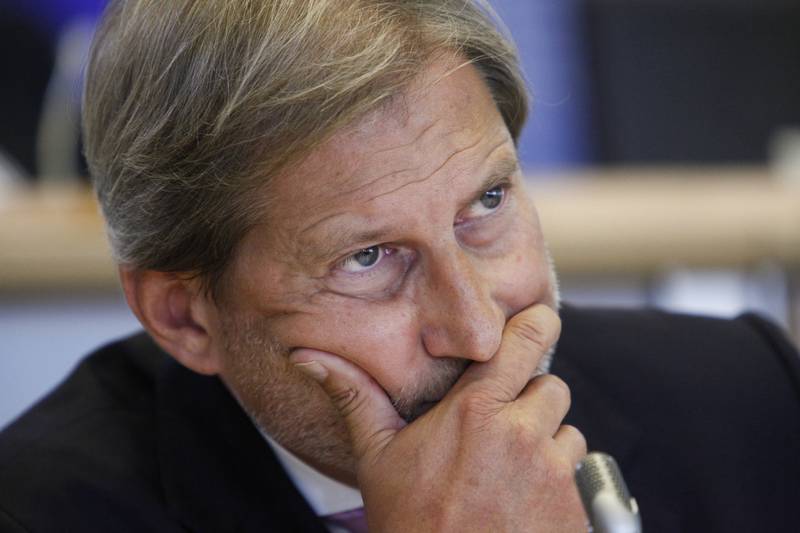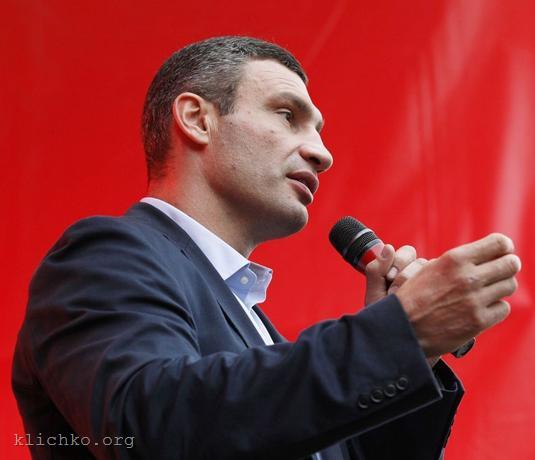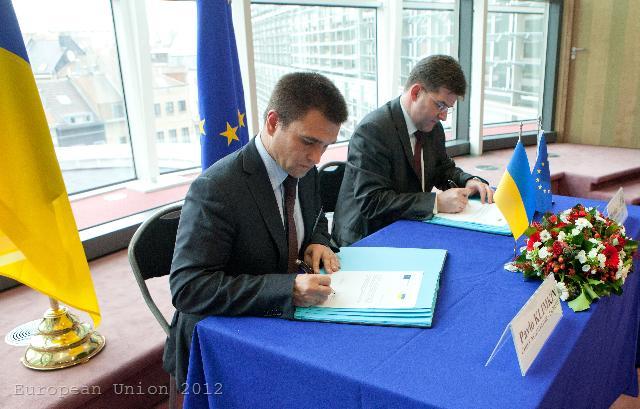Leszek Hensel: Ukraine Is Part of Europe
Adelina Marini, September 28, 2011
Note: For English subtitles please press the CC button on the player.
On September 29-30 starts the summit between the European Union and the countries from the Eastern Partnership - Armenia, Azerbaijan, Belarus, Georgia, Moldova and Ukraine. The event is being organised by the Polish EU Presidency and is one of Poland's very ambitious goals, given that the very initiative Eastern Partnership is a Polish idea, developed in cooperation with Sweden and launched during the Czech EU Presidency in early 2009. Two are the main reasons why EU's eastern neighbours were a bit abandoned lately. One is the events in the southern neighbourhood - the Arab Spring, and the other is that any further deepening of the relations with the Eastern Partnership countries should be done having in mind a very big factor - Russia.
A day before the official opening of the summit in Warsaw we took an interview from Poland's Ambassador in Bulgaria H.E. Leszek Hensel. As usually, we were welcomed with great hospitality - with tea, coffee and sweets. According to Mr Hensel the summit in the Polish capital will be full of meaning at least because all the officials that were invited had confirmed their attendance. A big attention in our conversation we paid to Ukraine as this is the country that is considered to be a potential leader in the accession of all of the six countries from the initiative with the European Union. It is also the most European-oriented nation of all the six. This is why the EU is currently negotiating with it on the first of its kind Deep and Comprehensive Free Trade Agreement (DCFTA) in the framework of the Association Agreement.
Leszek Hensel said that Poland hoped by mid-December, when the EU-Ukraine summit will take place, the agreement to be signed. There are voices, however, especially coming from western politicians, the negotiations on the DCFTA to be frozen because of the trial against former prime minister Yulia Tymoshenko, charged with abuse with authority because of the signed gas deliveries contract with Russia back in 2009. Poland firmly insists the negotiations to continue as dialogue is of essence. This is the key word regarding Belarus too, the ambassador said, dialogue, dialogue and again dialogue.
His answer was interesting also to the question what reactions should we expect from Russia for the summit. We also talked about to what extent Europe can be an incentive for reforms given the enormous problems it is facing right now.
A full text of the interview:
euinside: After a lot of postponement finally the summit between the EU and the Eastern Partnership will take place. What can we expect from it, what does Poland expect from it?
Leszek Hensel: Poland is very happy that it is during the Polish EU Presidency that this summit will take place. Even earlier, when it was planned this summit to take place during the Hungarian Presidency, we had an agreement with our Hungarian partners that Poland would be a co-organiser of the summit.
The Eastern Partnership programme is already two years old and it is now time the first summary to be made of this first stage and the guidelines for development to be chosen. We are glad that all officials have confirmed that they would attend, including Prime Minister Boyko Borissov. So, we hope that this would be a summit that would be full of meaning.
euinside: Does the EU apply the experience it had with the Eastern European countries from their joining the EU when it approaches the Eastern Partnership countries?
Leszek Hensel: The specifics of the Eastern Partnership project is that it was launched by a country from the region. We are glad that it was during the Czech Presidency that this project became a European one - initially it was just a Polish-Swedish idea. I would like to emphasise that during the preparatory
work on the concept of the Eastern Partnership, we referred to the experience of our partners from the Visegrad Four very often. I think that there is this very special division of specialities in the EU, and for certain the countries that recently joined the EU are much better specialists in the region related to this summit.
euinside: Against the backdrop of the Arab Spring some kind of increased suspiciousness has appeared in Ukraine towards EU's efforts to pull Ukraine closer to its sphere of influence. How do you regard this problem? Is it going to be a problem?
Leszek Hensel: I wouldn't call this problem suspiciousness. Ukraine, during the Orange revolution unequivocally stood in the direction of the European Union. Not long ago there were elections in Ukraine, we have a new political situation there but I think that no one has doubts that Ukraine is part of Europe. And I think that the EU should put efforts this European Ukraine to develop.
euinside: At what stage are the negotiations on the trade agreement and the Association Agreement with Ukraine?
Leszek Hensel: Of what I know over 90% of the issues, related to the Deep and Comprehensive Free Trade Agreement (DCFTA) have already been dealt with. So, we hope that in the upcoming weeks the negotiations will be over. An important fact is that this agreement is part of the Association Agreement between the EU and Ukraine. The Polish Presidency has the ambition by the end of our presidency, in mid-December, this agreement to be signed between Ukraine and the EU.
euinside: And does the political situation in Ukraine at the moment have any influence on this process?
Leszek Hensel: Of course, the political situation always has impact on the negotiation process. During the Council of the European Union in July there were voices, especially coming from Western politicians, the negotiations with Ukraine to be stopped because of Tymoshenko's arrest. Undoubtedly, all issues related to this situation have to be addressed very concretely. But the Polish Presidency defended
the position that no matter the situation, dialogue is essential and if we want to pull Ukraine closer to Europe we have to speak to its representatives even in difficult times. The Polish politicians held a lot of talks in Kyiv - not only Prime Minister Tusk and Foreign Minster Sikorski spoke to Ukrainian officials but President Komorowski too.
euinside: From the preparation of the summit so far it becomes clear that as if Ukraine will be in the focus of the summit, is that so?
Leszek Hensel: This summit is dedicated to the 6 nations from the Eastern Partnership. These countries are at various levels of their association to the EU. Indeed there might be an impression that Ukraine is in the spotlight but the reason is that its process of accession to the EU is at a higher level. But for sure we would like as quickly as possible to start negotiations with Georgia, with Moldova. All this is a matter of a process which has to go on and to unfold.
euinside: How do you expect Russia to react to this summit?
Leszek Hensel: Honestly, this question is not very clear to me. From the very beginning, when we presented the Eastern Partnership also in our contacts with Moscow, we underscored that this project was not aimed against Russia. It is in every country's interest, every organisation's interest to have a neighbourhood free from danger. A neighbourhood of the EU are the countries from the Eastern Partnership
and we would like to see in them good partners, both in terms of business and in terms of development of close contacts.
euinside: What can be the approach toward Belarus right now, because after all this is an authoritarian country?
Leszek Hensel: The situation in Belarus is indeed very specific. But Poland has always defended the position that even in hard situations there must be dialogue. So, also during the Polish Presidency in the Visegrad Group in 2009 we initiated a dialogue between the ministries of foreign affairs of the countries from the Visegrad Group and Belarus. Similarly now, at the Eastern Partnership summit the minister of foreign affairs of Belarus was invited.
euinside: It can be said that there is almost no country from the Eastern Partnership that is in no conflict with a neighbour or a third country. What can the EU do in order to help these countries overcome these conflicts?
Leszek Hensel: This is one of the matters I just spoke about - dialogue, dialogue and again dialogue. Central Europe's recent history shows how much tension there was in our region. The countries that are part of the Eastern Partnership project are a level behind in terms of building their mutual relations. So, the EU can be a kind of boost for the negotiations with these countries. And also by starting
aid projects and by consolidating the so called civil society. We can help reduce the tension in the region by assisting the modernisation of the legal system, we can help for the democratisation of these societies. Thus we can ensure a safe neighbourhood. And maybe in the future these countries can become part of our community.
euinside: Do you think the EU is losing its image of an oasis of democracy and prosperity because of the eurozone crisis, because of some problems with new member states like Bulgaria and Romania, because there are already such comments - why is the EU preaching us since they have so many problems of their own?
Leszek Hensel: The current situation shows that, maybe, the moment when the eurozone was created not everything was considered in the best way possible. But maybe you remember that moment when the euro was introduced and the enormous enthusiasm with which it was met in all countries. At the moment Europe is paying
the price of this enthusiasm. But on the other hand, when we see the wave of immigrants who are arriving in Europe, we see that the EU still has great gravity force. I wouldn't say that there is a division between the new and the old member states in the EU in terms of such that generate problems. Because, for instance, it was being said that the biggest economic problems were in the new member states,
but last year it proved that the only country that had positive economic growth was Poland. And also other countries, new member states of the EU tackled in an easier way the tough economic situation. So, I think that the time is slightly coming when the old divisions in the EU have to be forgotten.
euinside: Thank you.
 Johannes Hahn | © European Parliament
Johannes Hahn | © European Parliament | © klichko.org
| © klichko.org | © European Union 2012
| © European Union 2012